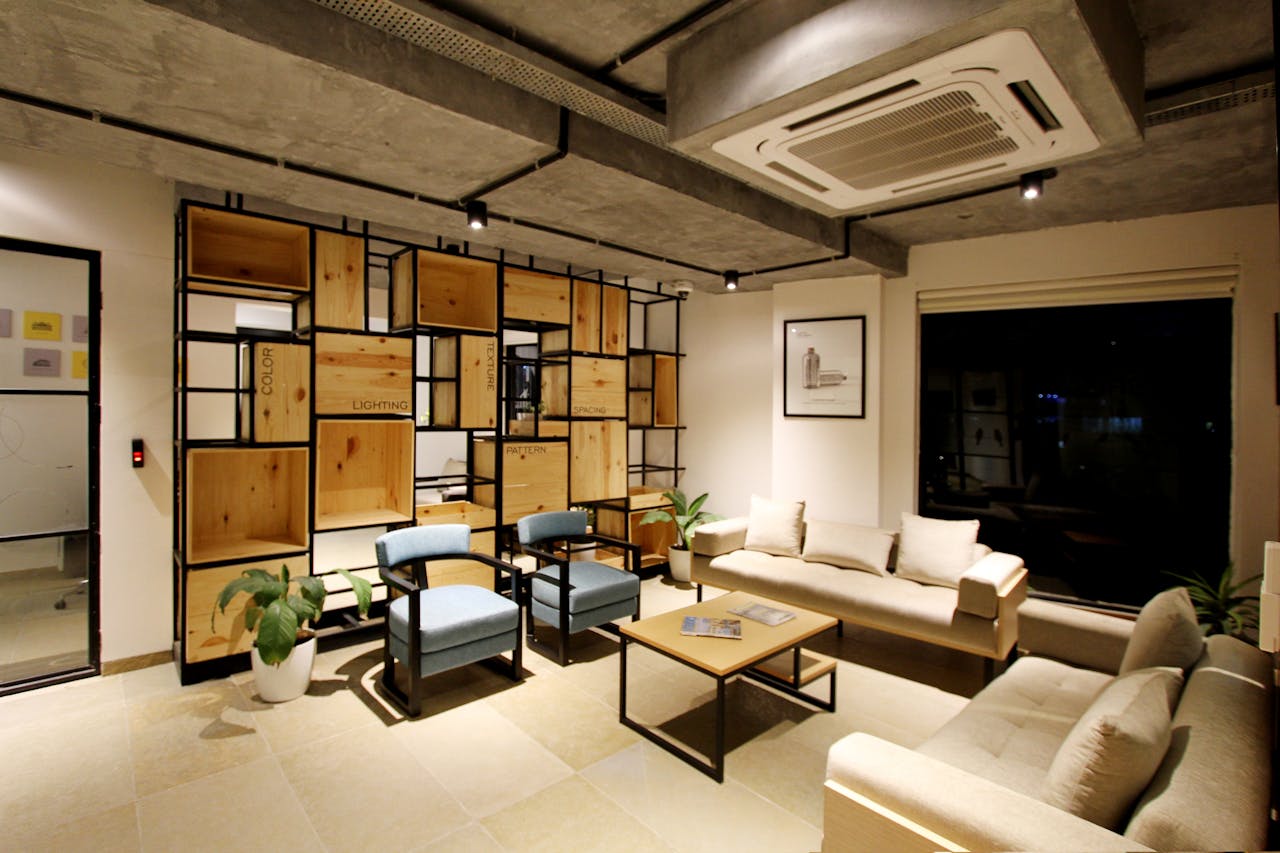Maintaining your air conditioning (AC) unit is crucial not only for ensuring a comfortably cool home but also for the system’s efficiency and longevity. Regular upkeep can ward off unexpected breakdowns, especially during the sweltering summer months when you rely on it the most. Beyond the immediate comfort, there are tangible benefits to keeping your AC running smoothly, including lower energy bills, improved indoor air quality, and avoiding costly emergency repairs.
This guide outlines five essential tips to help you maintain your AC unit effectively, ensuring it performs at its best. By adopting these practices, you can enjoy a cooler home environment, extend the lifespan of your equipment, and even contribute to environmental conservation through reduced energy consumption.
Whether you’re a seasoned homeowner or a first-time renter, these tips will empower you to take proactive steps in AC maintenance, guaranteeing optimal performance and reliability year after year.
Regularly Replace or Clean Air Filters
The air filters on an AC unit collect allergens, dust, and debris from the air that’s circulating around it. When the filter becomes clogged, it reduces the number of allergens, dust, and debris it can take out of the air, and also makes the unit have to work harder.
A clogged filter makes the air push out more forcefully decreasing the efficiency of the unit, instead placing more of a strain on the unit. In order to avoid this problem, it’s a good practice to replace your air filter every 90 days.
Clean Around the Unit
It’s important to always clean the areas around the AC unit as well, both indoors and outdoors. If there is an accumulation of dust on the inside next to the AC unit, it can be picked up by the filter and contribute to clogs putting a strain on your unit.
Similarly, if the outside unit is surrounded by shrubbery, there is the possibility of outdoor elements such as sticks, leaves, and bugs getting stuck in the unit, forcing the unit to exert more force and utilize more energy to function properly.
Use a Smart Thermostat
If you have the option to be in complete control of your unit, always take it! A smart thermostat utilizes smart technology which allows you to control your climate control systems through an app on your phone. This means your AC will only run when necessary to meet your specific needs.
Check the Exterior of Your Home
It’s a good idea to check the exterior of your home to ensure that there are no cracks in the floor, gaps in the doors, or any indication of outdoor elements somehow entering the home. If anything can enter, it also means something can exit. This means that if there’s a draft in your home, your AC unit will have to work overtime to compensate for the air being lost.
Enroll in a Maintenance Plan
When all else fails, go to the professionals! As homeowners, the upkeep of all of it can be absolutely overwhelming. In the long run, it’s better to remain a step ahead of the curve and receive specialized attention through a maintenance plan. This ensures that professionals regularly come in and properly assess your AC system, keeping your system running smoothly.
Additional Tips for Your AC Maintenance Routine
Expanding on the theme of maintaining an air conditioning (AC) unit for optimal performance, here are additional tips to complement the original 5, making your guide even more comprehensive:
- Inspect and Clean the Condensate Drain Line: Prevent water backup and potential water damage by regularly checking and cleaning the AC’s condensate drain line.
- Check Your AC’s Refrigerant Levels: Low refrigerant can cause your system to work inefficiently. Have a professional check and refill it as necessary.
- Upgrade to a High-Efficiency Air Filter: Consider using air filters with higher MERV ratings for improved air quality and system efficiency.
- Seal and Insulate Ductwork: Ensure that your AC ducts are properly sealed and insulated to prevent cool air from escaping, improving efficiency and airflow.
- Keep Vents Unblocked and Clean: Make sure furniture or curtains don’t block air vents, and keep them clean for better air distribution.
- Use Ceiling Fans to Circulate Air: Ceiling fans can help circulate cool air more effectively throughout your home, allowing you to set the thermostat a few degrees higher.
- Schedule Bi-annual Maintenance Checks: Instead of annual checks, consider bi-annual servicing to prepare your system for both the cooling and heating seasons.
- Optimize Shading Around Your Home: Plant trees or use awnings to shade your AC unit and home, reducing the cooling load and improving efficiency.
- Adjust Thermostat at Night: You can save energy by increasing the thermostat setting during the night or when you’re not home.
- Use Window Treatments to Block Heat: Utilize curtains, blinds, or shades to prevent solar heat gain through windows during the hottest parts of the day.
- Lubricate Moving Parts: Reducing friction in motors and bearings can increase efficiency and extend the life of your system.
- Check for Air Leaks and Seal Them: Ensure windows, doors, and other areas are sealed properly to keep cool air inside.
- Opt for Light-Colored Roofing Materials: If replacing your roof, light colors reflect more sunlight, reducing heat absorption and cooling needs.
- Cover Windows with Solar Screens or Films: Solar screens or reflective films can block a significant amount of solar radiation, reducing your cooling costs.
- Decrease or Avoid Use of Heat-Producing Appliances During the Hottest Times: Minimize the use of ovens, stovetops, and dryers during peak heat to keep your home cooler.
Incorporating these additional tips into your AC maintenance routine can significantly enhance the efficiency, performance, and longevity of your cooling system, ensuring that you stay comfortable while managing energy costs effectively.
Conclusion
In conclusion, maintaining your air conditioning (AC) unit through a comprehensive care routine is essential for ensuring its efficient operation, longevity, and your home’s overall comfort. By implementing the core tips alongside the additional strategies provided, you can significantly enhance your AC’s performance, reduce energy consumption, and avoid costly repairs down the line.
Regular maintenance, from simple tasks like cleaning air filters to more technical checks such as inspecting refrigerant levels and ensuring proper insulation, plays a critical role in the health of your cooling system. Taking proactive steps today can save you from the inconvenience and expense of emergency repairs tomorrow, making AC maintenance an invaluable investment in your home’s comfort and efficiency.


